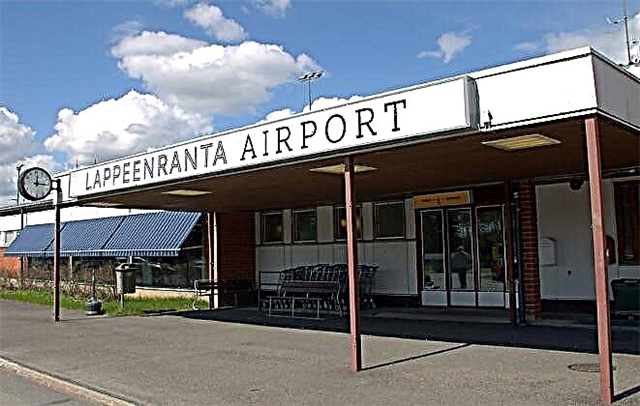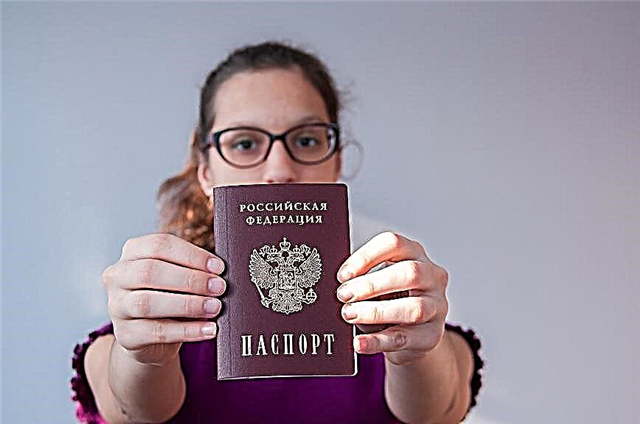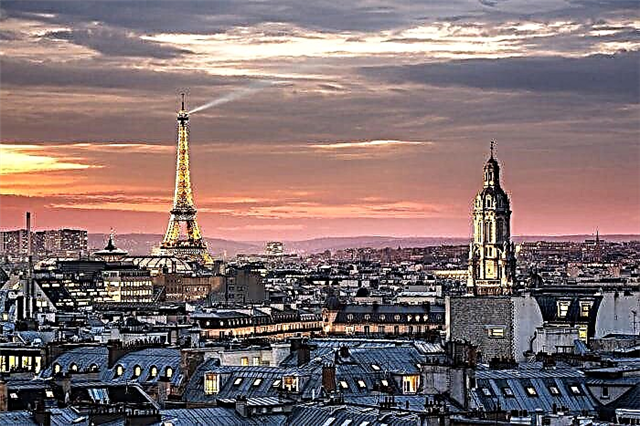France has been and remains an important European partner for Russia, since relations between the countries have a solid historical and cultural basis. Some come here to relax, others - to earn extra money. It is useful for those wishing to move from Russia to a permanent place of residence to find out in advance how Russians live in France.

Historians believe that the tradition of visiting France, adopting the European way of life, was laid down in 1717 by Peter the Great. Nobles, officials, merchants and their children rushed after him. This was the beginning of the fashion for traveling to Paris from Russia, which continued until 1917.
In 1814, the Russian army, led by Emperor Alexander, entered the country as a victor. At that time 45,000 Russian soldiers were stationed near Paris. And many of them never returned to Russia.
At the beginning of the 20th century, the Cote d'Azur was the most popular resort among the Russian aristocracy, and Paris was called the "Russian city". The mass migration of Russians, later called the first wave, lasted from 1914 to 1922. The First World War, the Revolution and the Civil War brought about 300,000 Russians to France (data from the 1930s).
They built Orthodox churches, cultural centers and charitable organizations such as Zemgor, the Russian Red Cross Committee and the Russian Student Christian Movement, which provided their community with political ties and provided material assistance to emigrants.
“After a year we already considered ourselves real Parisians. We spoke French ... worked side by side with the French and tried to imitate them in many ways. True, we had our own way of life: our own churches, clubs, libraries, theaters ... for communication, for mutual support, so as not to get lost in this country, "wrote Alexander Vertinsky.
The Second World War allowed thousands of former Soviet citizens fleeing the totalitarian regime to settle in France. In the 1970s, emigration was replenished with a third wave - dissidents from the USSR, mainly art and cultural figures.
There is no exact official data on how many Russians live in France today. In 2021, there were approximately 115,000 of them, and in Paris itself - more than 5,000.
Attitude towards Russians in France
For the French, it is important what others think of them, so they try to be hospitable, tolerant and respectful of Russian culture. The attitude towards Russians in France is good, especially in Paris, where there are always a lot of tourists.
Natives of Russia note the politeness of the French, their tolerance and openness. The attitude towards emigrants depends on them. Usually Russians are surprised to see how they smile and apologize here.
A Frenchman's smile and frequent pardon are the norm. If a person did not respond with a mutual smile or did not ask for forgiveness for accidentally hitting someone, this can be regarded as rude.
On February 7, 1992, the "Treaty between Russia and France" was signed, confirming the desire of both countries to develop "concerted actions based on trust, solidarity and cooperation." Since then, the legal framework of relations between states has expanded, dozens of agreements have been concluded in various areas of cooperation. And in 2021, the Year of France-Russia was held, within the framework of which more than 350 events were held in the fields of culture, history and economy.
Adaptation of Russians in France
There is a small diaspora in the country, consisting of Russian emigrants and their descendants. There are associations, cultural centers and clubs in the capital and the provinces, where the Russian community in France strives to preserve their native language and culture. For example, the associations "Help Center in Searching for Information", "Russian Heritage" and "Glagol". The main goals of these organizations are the development of Russian-French ties, cultural exchange, and teaching the Russian language.
Knowledge of the language will help to adapt faster in a foreign country. Russian schools and other educational institutions work for children. For adults, French friends become a great help in learning the language.
New acquaintances help not only to establish a life and get a job, but also make life more interesting and fulfilling.
For several generations of Russian emigrants, France has become a second homeland. And communication with compatriots helps many newcomers to establish life in France for Russians. There is a whole Russian district in Paris with national restaurants and shops.
You can communicate, find answers to questions or work, learn about diaspora news on Russian-language sites:
- Embassy of the Russian Federation in France,
- electronic version of the newspaper "Russian Thought",
- newspaper "Russian eyewitness",
- forum "France and us",
- Franco-Russian Association "Istok",
- Franco-Russian Association "Perspective",
- French-Russian intercultural association "Neva",
- Forum "Parisian Brotherhood".
Unlike the United States, where migrants tend to be called Americans as quickly as possible, in France cultural and mental characteristics are valued. Therefore, most of the families of emigrants, including Russian-speaking ones, preserve their traditions, teach children their native language.
Pros and cons of living in France
Here are the benefits Russian emigrants see in France:
- The opportunity to live in a beautiful country with a rich historical and cultural past, picturesque and diverse nature.
- Mild climatic conditions: no sudden changes in temperature, summer smoothly turns into winter, and winter without severe frosts.
- High, in comparison with most post-Soviet countries, the standard of living in France. A worker can earn 1,000-1,300 euros per month, with a higher skill level more than 2,000 euros.
The average pension is 1,000 euros (foreigners can receive a pension after 10 years of residence in the country). There are benefits, social benefits, subsidies.
The prices for the products are affordable. Having paid for utilities and food, the migrant will spend about 20% of his salary. Housing rental costs about the same as in Russia.
Disadvantages of living in France, according to reviews on the forums:
- Complex and lengthy bureaucratic procedures. In order to issue something, you need a lot of certificates, completed declarations and patience. It is impossible to speed up the process.
- High taxes.
- Features of everyday life. For example, in large cities all shops are usually closed on weekends.
Finally
Modern migrants mainly come from the Russian Federation to France for economic and social reasons: to get an education, a decent job, to live in a progressive European country.
The easiest way to find a job in France is for programmers, engineers, scientists - mathematicians, physicists, chemists, who are looking not only for salaries in euros, but also for scientific prospects.
Representatives of the modern Russian diaspora willingly support compatriots and Russian-speaking people from other CIS countries.











